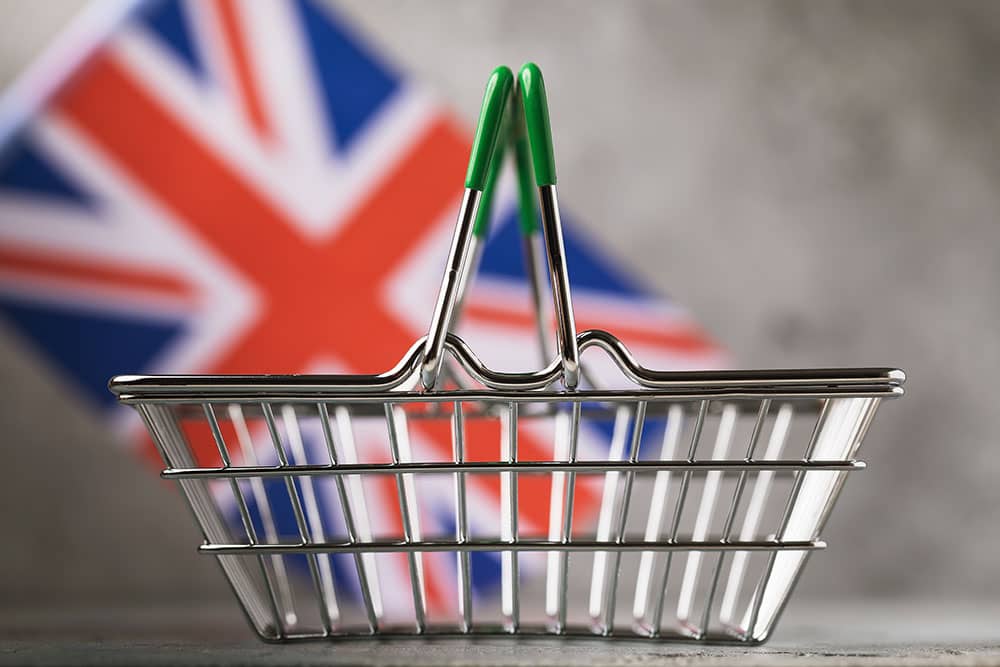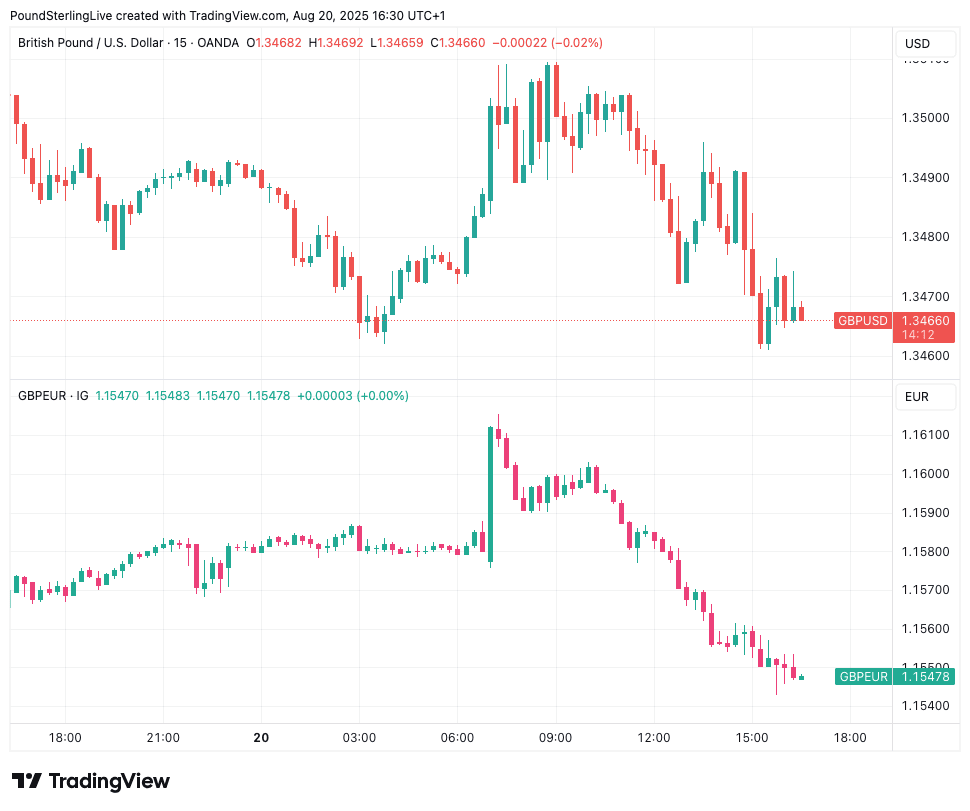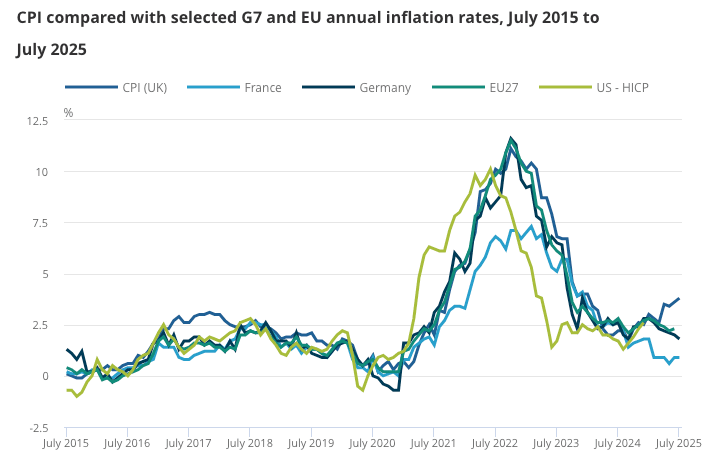
Image © Adobe Images
Concerns over stagflation and the prospect of emergency rate cuts in 2026 aren't helping the British Pound.
The Pound is recording losses against the Euro, Dollar and other major currencies, having risen sharply following news that UK inflation was stronger than expected in July.
The ONS said CPI inflation rose 3.8% year-on-year in July, up from 3.6% in June, and exceeding estimates (3.7%). The all-important services CPI inflation rate rose from 4.7% to 5.0%, while food inflation rose to 4.9% y/y.
Markets promptly cut expectations for further interest rate cuts in 2025 in the wake of the figures, which had the effect of pushing UK government bond yields higher, which naturally sent the Pound higher.
Fast-forward to the afternoon and the market has adopted a different tone, earlier gains have been erased: the Pound to Euro exchange rate now trades a third of a per cent down at 1.1546, having been as high as 1.1610. The Pound to Dollar exchange rate is down 0.17% on the day at 1.3467.
Bond yields have also reversed, and are down on the day across the 2, 5, 10 and 30-year tenors.
What's behind the surprising price action, and what does it tell us about the Pound's outlook from here?
Although traders have been paring their bets on the Bank of England’s easing trajectory going forward, they have actually added to bets on Bank of England cuts in 2026.
This suggests they see a sharp enough economic slowdown next year that will bring inflation down and push the Bank into cutting interest rates. If the economy deteriorates enough, it could even push the Bank into some potentially hefty emergency interest rate cuts.
"The private sector UK economy continues to struggle, and the autumn budget may limit the ability of the public sector to provide an offset. If inflation keeps the BoE from cutting rates, it could weaken the economy and lead to more rates cuts in the future," says Daragh Maher, Senior FX Strategist at HSBC.
As always in currency markets, it's what the future holds that matters, and right now we are looking into next year, and the economic setup, as well as interest rate profile, aren't necessarily supportive.
"GBP unwinds initial lift to trade below CPI reaction level. A stagflationary backdrop is not currency supportive," says Justin McQueen, a Reuters market analyst. (Stagflation is where the economy slides and inflation rises, which is something one can take away from Wednesday's inflation release.)
News that food inflation rose to 4.9% is particularly concerning for economy watchers, as food is one thing we as consumers are highly attuned to, meaning it can shape our perceptions of inflation to a greater degree than other aspects of the inflation basket.
And perceptions are important as they can influence behaviour that begets either higher or lower prices; for instance, consumers will press for higher wages, while businesses will raise their own prices.
Yet, the Bank cut interest rates by 25 basis points as recently as August 07, with one member of the Monetary Policy Committee going so far as saying the Bank should have cut by 50bp.

Above: GBP/USD and GBP/EUR (bottom) at 15-minute intervals.
Cutting as all measures of inflation are rising is clearly confusing for a public that needs to know the Bank of England serves to lower inflation. The Bank risks making a mess of it by cutting further and actively deanchoring inflation expectations.
"The perverse rate cut earlier this month looks even more ridiculous and irresponsible in the light of this news. 4pc plus inflation is coming in the autumn!" says Andrew Sentance, an economist who formerly served on the Bank's Monetary Policy Committee.
It is little wonder then that markets think the Banks wings have been clipped by these inflation data and that it will have to sit tight for the remainder of the year.
As the chart suggests, UK inflation is starting to look like an outlier: the UK is heading in the wrong direction.
There is a risk markets lose faith with the UK economic & debt trajectory as inflation hits the economy and grows the government's ever-expanding budget deficit.
Analysts are worried that the fiscal issue is proving a potentially negative factor for GBP, and will become increasingly concerning in the run-up to Autumn's budget.
Markets will be watching UK bond yields rise ahead of the budget, indicating investors are requiring a bigger return for holding UK debt in light of rising inflation and concerns over the future sustainability of debt dynamics.
"Fiscal worries will weigh on sterling come Budget time," says Robert Wood, Chief UK Economist at Pantheon Macroeconomics.
"If the UK gilts market hits the headlines, it is usually a sign of bad news," says Jane Foley, Senior FX Strategist at Rabobank. "A well-balanced gilts market tends to be a dull and boring one that steers away from the limelight. Unfortunately, there are a number of factors around inflation and (the lack of) welfare reform that have kept gilts relatively lively in recent months."

